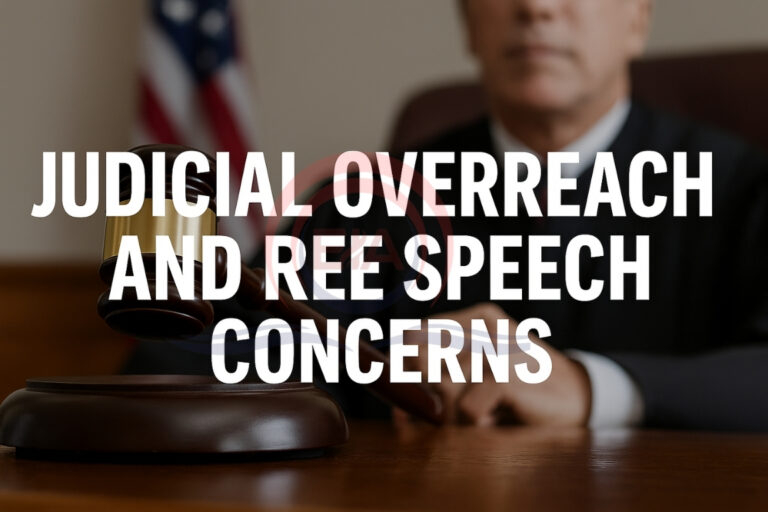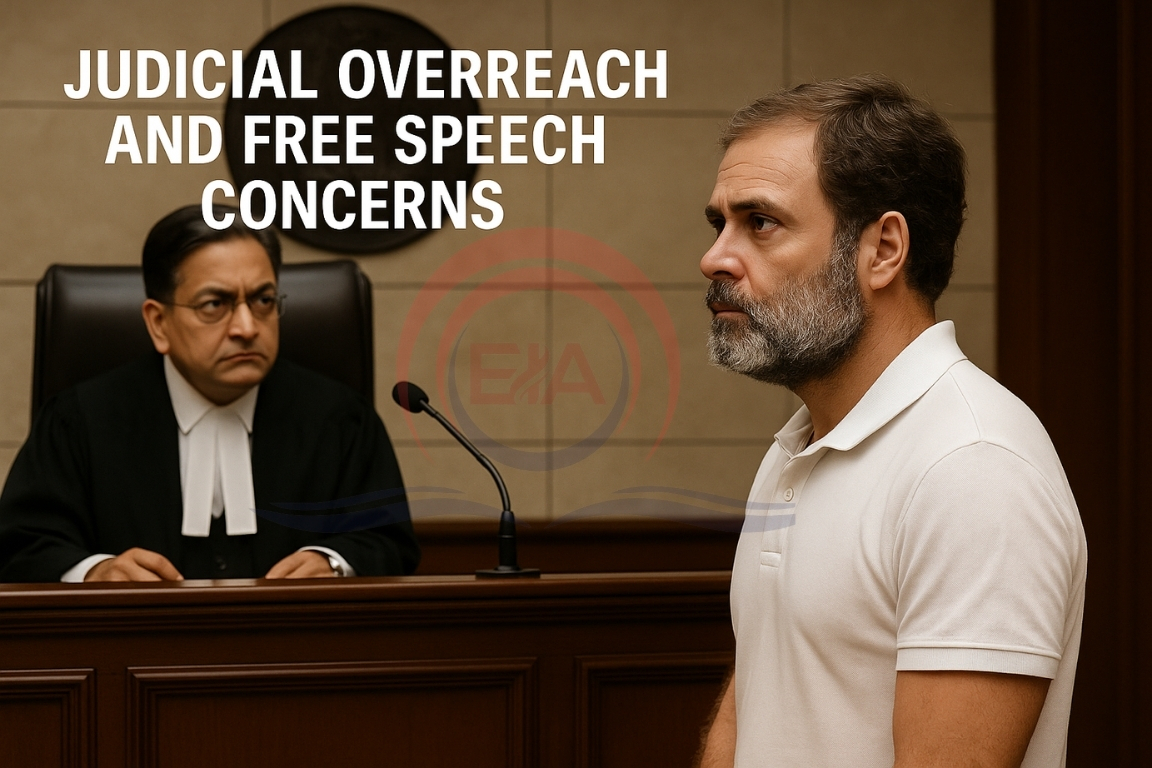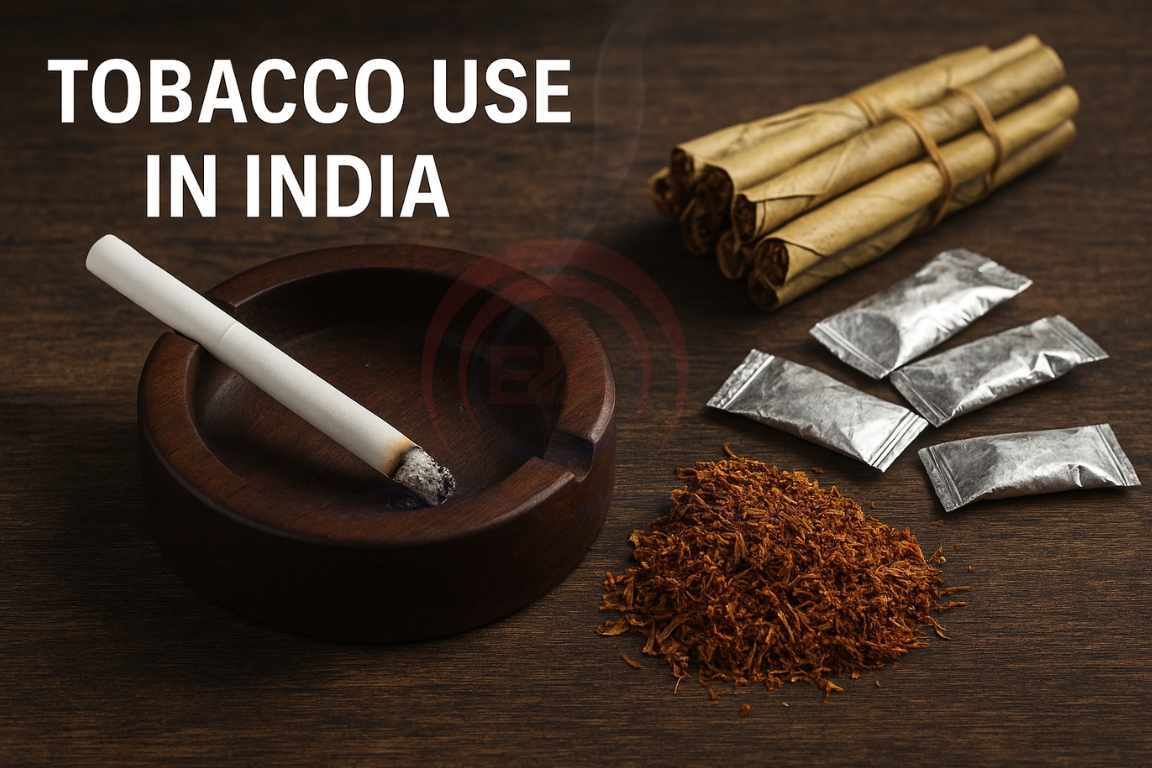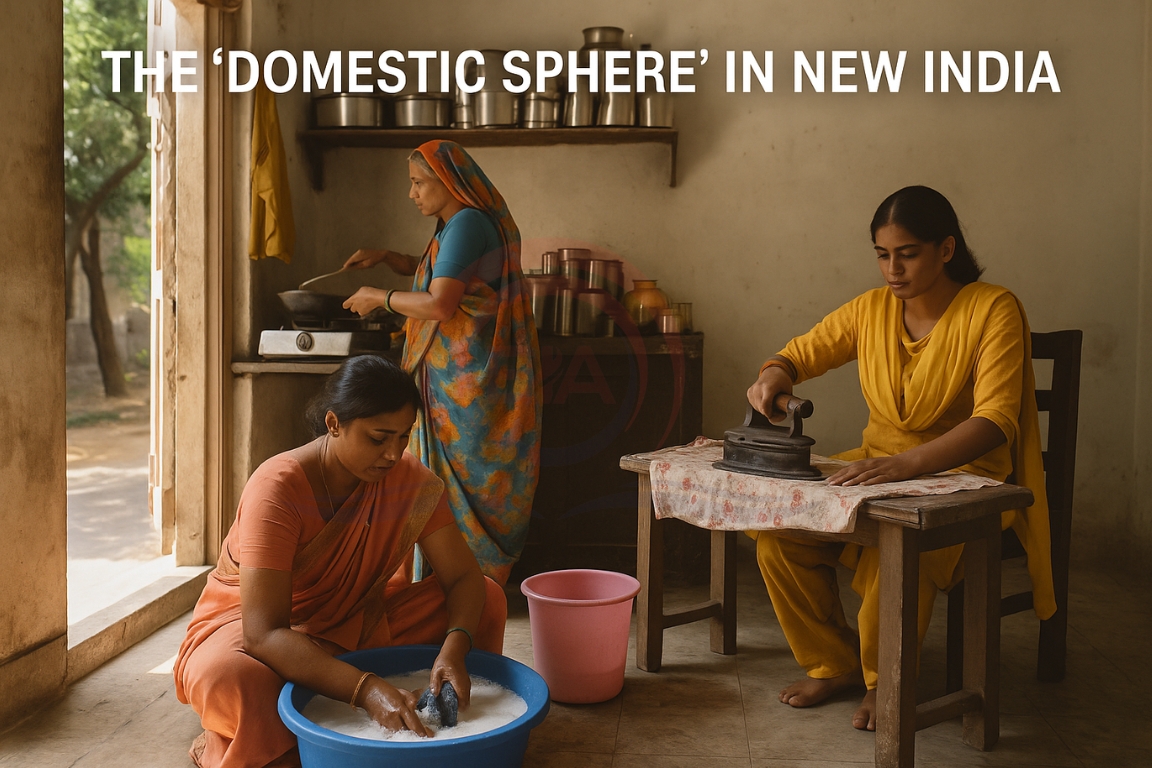The Supreme Court made controversial oral remarks against Congress leader Rahul Gandhi during a hearing on a defamation case related to his comments on the Galwan clash. These remarks have sparked a debate on judicial overreach and the right to political dissent.
Background of the Issue
- Rahul Gandhi had questioned the Indian government’s stance on the 2020 Galwan Valley clash with China.
- He made statements suggesting loss of Indian territory and government inaction.
- A defamation case was filed against him for these remarks.
Supreme Court’s Remarks
- A bench led by Justice Dipankar Datta made an oral observation that a “true Indian” wouldn’t say what Mr. Gandhi did.
- This comment raised concern as it appeared to judge patriotism instead of focusing on legal arguments.
- The Court’s role is to interpret the Constitution and laws, not to define national loyalty.

Judicial Overreach
- It means the judiciary (courts) interfering too much in the work of the executive (government) or legislature (Parliament).
- Courts should interpret laws, not make or enforce them.
- When they go beyond their role, it is called judicial overreach.
- Example: If a court orders how a government scheme should be run step-by-step, it may be overstepping its role.
Free Speech
- It is the right to express one’s opinions freely without fear, as guaranteed under Article 19(1)(a) of the Indian Constitution.
- It includes speaking, writing, and sharing views publicly.
- Limits: Free speech is not absolute. It can be restricted in the interest of:
- National security
- Public order
- Decency or morality
- Contempt of court
- Defamation
Concerns of Judicial Overreach
- Such statements from the judiciary can discourage political criticism.
- Criticism of the government, especially by Opposition leaders, is a key part of democracy.
- Free speech is a constitutional right, especially in political debate.
- By implying that certain opinions are “un-Indian,” the Court risks weakening public dissent.
Credibility of Rahul Gandhi’s Statements
- Gandhi’s remarks are supported by: Open-source satellite data showing Chinese activity at the LAC. Parliamentary reports acknowledging loss of patrolling rights in areas like Depsang and Galwan.
- Statements by military experts and locals pointing to restricted access to grazing lands.
- The estimate of around 2,000 sq km of lost access has been cited by defence analysts.
Way Forward
- The judiciary should stay neutral and avoid making personal or moral judgments.
- Its primary responsibility is to uphold constitutional values and safeguard free speech.
- A strong democracy depends on independent courts, free media, and open criticism of power.
Conclusion:
By focusing only on law and protecting dissent, the Supreme Court can uphold its legitimacy and support India’s democratic framework.





